Ichirō Ryūzaki
出生 : 1912-02-19, Yokohama, Kanagawa Prefecture, Japan
死亡 : 1988-06-28

Inspector Mishima
The story of Sanshiro Sugata, a young man who wants to learn the new art of judo. A wise teacher reveals to Sanshiro that judo is not merely a means of combat nor a demonstration of physical skill, but an art which reveals the artist to himself.
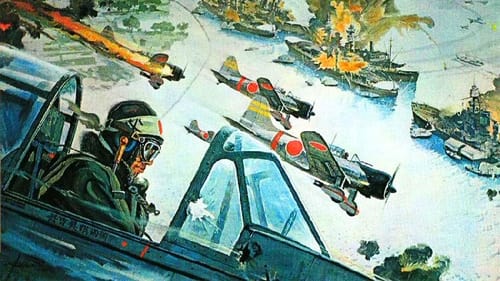
Rear Adm. Ryunosuke Kusaka
1941年12月8日の日本軍による真珠湾攻撃の全容を、日米合作オールスター・キャストで映画化した超大作。

The film takes place in Yokohama, a night city where you can revel in the neon mood. A bartender who wants to become a singer and a beautiful married woman burn fierce and ephemeral love in a confrontation with a ruthless yakuza.
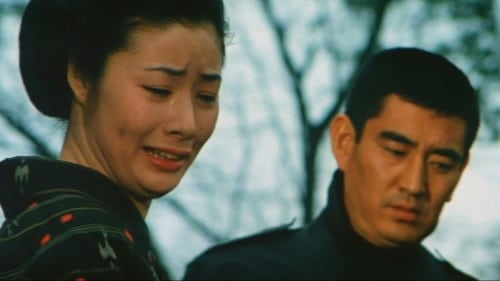
昭和30年前後、ある地方都市。刑務所を出所した速水は世話になった田島組に戻るが、田島組は新興勢力の本間組と対立していた。速水は組長の娘・敏子にひそかに好意を抱くが、田島組のある組員が本間組に射殺されてしまう。速水が単身、本間組に殴り込みをかけると警察に逮捕されて、ふたたび懲役へ。そこで昔なじみの流れ者・黒島と再会するが、黒島は本間組の世話になる身だった。塀の外では田島組と本間組の抗争が激化する。
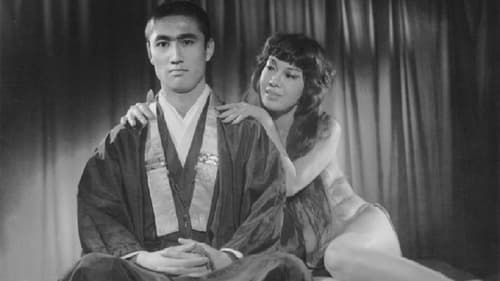
猪俣勝人の映画(1962年)

Hijikata Toshizo
1961 Japanese film about the Shinsengumi.

Matsui

Dietman Kenzo Tamiya
Kazuko Matsuo sings the theme song to this drama film.

Japanese spy film.
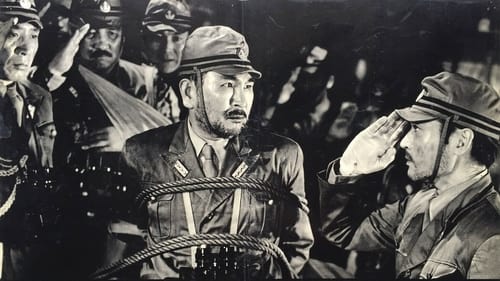
Admiral Yamamoto
In 1941, overpopulated Japan faces an economic boycott and its armed forces push further to the south. And despite negotiations between Japan and the U. S. A. war is declared with the attack on Pearl Harbour. Victories follow for Japan on land and sea and her forces push forward to the borders of India. But gradually the tide turns in favour of the Allies and after the atom bombings of Hiroshima and Nagasaki, Japan is compelled to accept the Potsdam Declaration and by the order of the Emperor agrees to unconditional surrender. Under the supervision of the occupation forces the International Military Tribunal opens in Tokyo to try the Japanese war leaders. Established in the cause of justice, and to prevent future aggressive wars the trials drag on for two and a half years. And on December 23, 1948, General Tojo and six other war leaders mount the thirteen steps to the gallows at Tokyo's Sugamo prison.

Film directed by Tadashi Ashihara
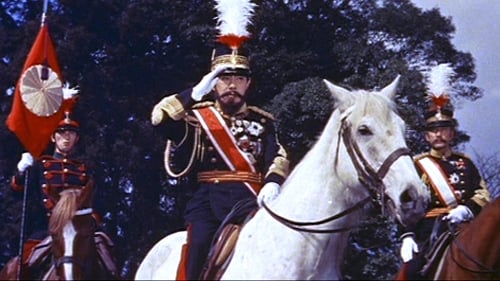
Dr. Tomizu
Meiji Tenno portrayed the ramp up to the Russo-Japan War. In addition to showing the political events that led to war, it also showed the era from the story of a farm family in rural Japan who sent their son off to war. As such, it could be considered an anti-war movie, showing how, while war is devised by governments, the people do not really understand what war is, and it's combatants often do not know what they are fighting for.

Based on the famous novel by Yamagami Itaro, this is the story of a group of ronin living in abject poverty in the latter days of the Edo period. Starring the great Konoe Jushiro, Ronin Gai is populated by an ensemble of colorful characters, social outcasts who patronize a restaurant and bar on the outskirts of Edo. Among them are masterless samurai reduced to drunkenness and debauchery. One disgraced and disillusioned former warrior gets a chance at redemption when he is hired to retrieve a famous knife from a corrupt lord. This is the third version directed by Makino Masahiro and is considered a true classic.

Admiral Isoroku Yamamoto leads the Combined Fleet of the Imperial Japanese Navy to defeat the American Fleet.

Okawa Hashizo as 'Young Lord', the unlikely sleuth sets out to untangle the riddle of what went on at the Inner Palace, where a young woman who had served the Shogun came home in fear for her life. Will the Young Lord uncover the truth of what went on at the Palace, and does it relate to a series of murders that have been occurring just before the festival?

Yuten Yamada
The orphaned son of a count who was assassinated by his subordinates in a conspiracy during the Pacific War becomes obsessed with taking revenge on his late father's enemies.

Shunsuke
Based on the novel by Kojin Shimomura. Story of a young boy and his adventures in the country. His idyllic life is shattered by the illness and death of his mother.
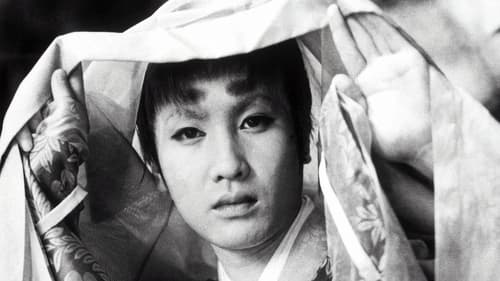
A historical scroll depicting the story of the tragic fate of the young samurai Minamoto Yoshitsune, based on the novel by Genzo Murakami. The action of the first part takes place in the late Heian period, when the Taira clan came to power, and Genji was oppressed. The great dream and ambitions of Genkuro Yoshitsune in his youth are depicted, he joins forces with his older brother Yoritomo to raise an army to defeat the Taira clan, and the second part depicts the fall of the clan, persecution and murder.
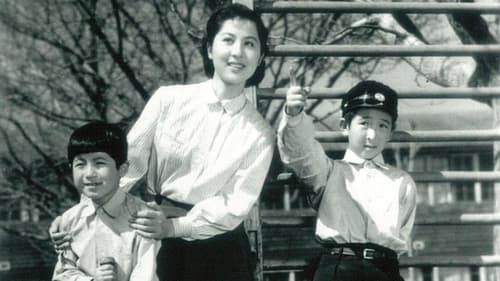
Sankichi Murata
A university professor and his wife have two sons with infantile paralysis. Through trial and error, they struggle to open a school for disabled children at their own expense. Based on a true story, it features natural child performances under Hiroshi Shimizu’s skillful direction.

1952 Japanese film directed by Kunio Watanabe.

Obscure Japanese movie by director Kyotaro Namiki

A romantic melodrama about the shifting relationship between Ryosuke and Miki as their precarious employment and social circumstances shift around them.

Ebihara
Ebihara is a budding novelist entangled in a complicated web of relationships with three women from three different generations: Kazue, a coquettish teenage war orphan who tries to offer herself for money but is instead taken in by Ebihara, Koyabu, a middle-aged woman who has spent much of her life as the kept woman of a wealthy man, and Teruko, the modest daughter of Ebihara's former teacher who comes to rely on him after the death of her father.

Melodrama that lovingly portrays working people who live in poverty but righteously. Kosaburo Yoshimura, the master of "women's films," cast Yasuko Fujita, an unknown newcomer, in the leading role for this masterpiece about the joy of love. The Yoshikawa family is a typical small town family. With only the father's and daughter's salaries to support the family's six members, life is not easy.

Tamao Numata
Continuation of The Blue Mountains: Part I. Released a week later.

Tamao Numata
Teacher Yukiko finds herself in opposition to conservative faculty and villagers after defending a student for being in a relationship with a young man from Tokyo.

Three and a half years after Japan was bombed, the tax authorities organized the T-Men. Nango is in love with a girl called Mibu, and the two are against the T-Men organization. Mibu whats to kill all of the T-Men one-by-one.
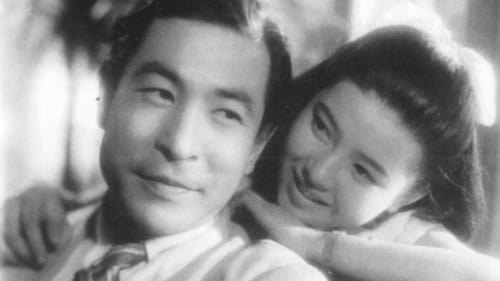
During his summer holiday, Kawasaki Ryuichi (Ryuzaki Ichiro), a handsome engineer in his late twenties, visits his teacher and mentor, Professor Inagaki (Sugai Ichiro), at his seaside home. There he meets the professor's lovely young wife, Sachiko (Hamada Yuriko), and is unsettled by the striking resemblance she bears to his wife, who died three years earlier. Attracted to Sachiko, he does his best to hide his feelings. The couple, however, senses a deep-seated melancholy in him. Attributing it to the loss of his wife, they urge him to marry their niece, Kaoru, but he is not interested. Shortly after, Fumiko , Sachiko's older sister, realizes that Sachiko and Kawasaki have feelings for each other, but she keeps her counsel. One day Kawasaki, Sachiko, and Kaoru go boating when a storm forces them to stay overnight at a hotel. Unable to sleep, Kawasaki takes a walk along the beach where he finds Sachiko, also unable to sleep. He declares his love for her.
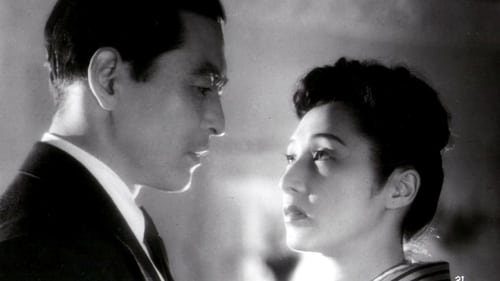
Nogami
A romance with political overtones about the relationship of a sheltered bourgeois woman and a doctor who devotes himself to caring for the poor. Over a ten-year period - from 1936 through the war - they find each other and are separated again by the events of those tumultuous days.

Corporal Kumazawa
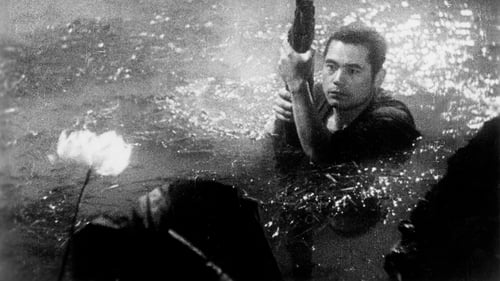
Monma's pupil (uncredited)
The story of Sanshiro, a strong stubborn youth, who travels into the city in order to learn Jujutsu. However, upon his arrival he discovers a new form of self-defence: Judo. The main character is based on Shiro Saigo, a legendary judoka.

The premature death of a young mother serves as inspiration for her husband and son.

Hajime Munechika's colleague
1941 Toho adaptation of Natsume's novel.


















